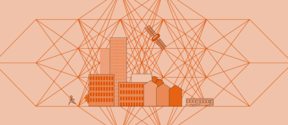Aalto University to join European Union Centre of Excellence for novel materials
The School of Science is involved in the project under the direction of Academician Risto Nieminen and professors Adam Foster and Patrick Rinke. The Centre is headed by Professor Matthias Scheffler of the Fritz Haber Institute of the Max Planck Society in Berlin. NoMaD Centre of Excellence consists of seven leading research groups in computational materials science and four high-performance computer centres, including the CSC - IT Center for Science in Finland. The project is receiving EUR 5 million in funding from the EU Horizon 2020 programme.
The ambitious goal of the researchers is to create a 'Materials Encyclopedia', i.e. an extensive database and search engine that analyses and visualises results. This allows researchers and businesses to find comprehensive information on materials from a single source as well as utilise existing data by means of big-data analytics. Achieving this goal will require multidisciplinary expertise, in which physicists, chemists, IT specialists and industrial experts combine their knowledge.
'The tools being developed in the project will accelerate materials research and technological development, not to mention the creation of new applications. The tools will facilitate the design and synthesis of new chemical compounds and atomic structures as well as the finding of new material phenomena,' explains Risto Nieminen.
The Centre of Excellence in Computational Nanoscience, COMP, at Aalto University is also involved in the development of new materials based on this. The centre conducts theoretical and computational research on nanomaterials, structures and components. Research areas include the electronic properties of materials and nanostructures, multi-particulate quantum physics and nanostructures of surfaces and interfaces.
Materials are present in everyday life in a wide variety of ways and industry uses novel materials in, for example, solar panels, light metals, hard surface coatings and numerous other applications. The number of possible material solutions is extremely large, nearly infinite.
Further information:
Professor Adam Foster, [email protected], tel. +358 50 4333097
Professor Patrick Rinke, [email protected], tel. +358 50 4433199
Dean Risto Nieminen, [email protected]
More about the NoMaD Project
- Published:
- Updated:
Read more news

Get to know us: Associate Professor Maria Sammalkorpi
Sammalkorpi received her doctorate from Helsinki University of Technology 2004. After her defence, she has worked as a researcher at the Universities of Princeton, Yale and Aalto.
Aalto computer scientists in ICML 2024
Computer scientists in ICML 2024
Getting bacteria into line
Physicists use magnetic fields to manipulate bacterial behaviour